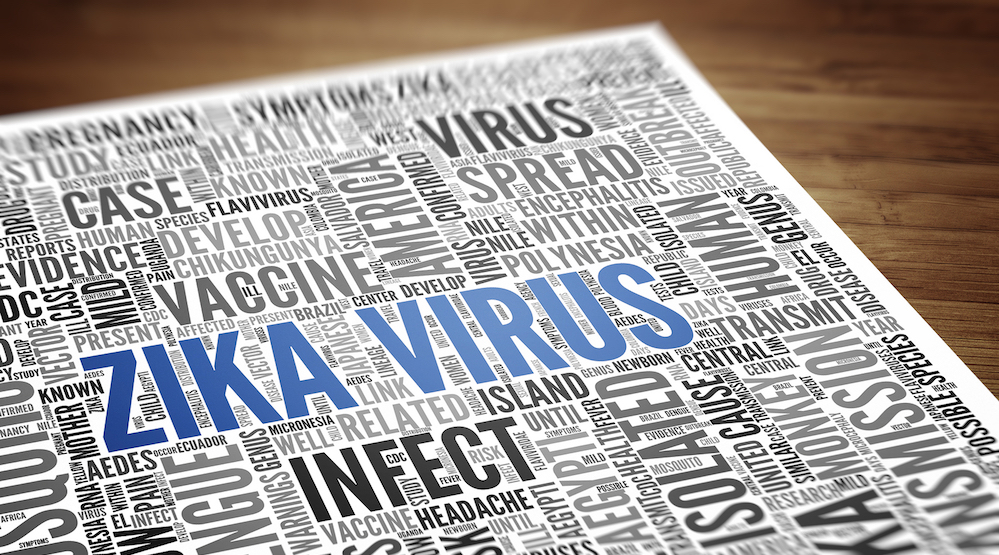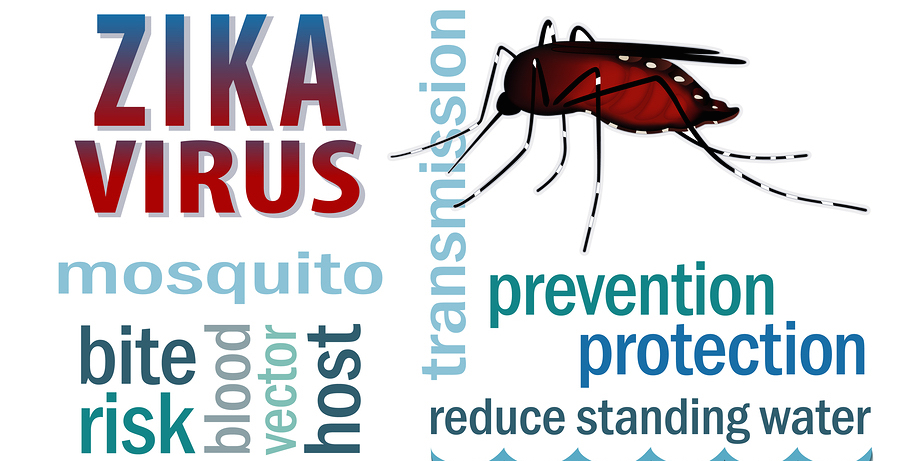READY TO GET STARTED?
REQUEST A FREE ESTIMATE
Fill out the form below or call (888) 466-7849 for a free, no-obligation estimate.

The first cases of locally transmitted Zika virus were reported this week in Florida. On July 29th, 4 people infected with Zika virus in Miami reportedly were bitten by mosquitoes within the city. On August 1st, that number grew from 4 to 14 infected. Until now, all reported cases of Zika in the United States have been linked to those who recently travelled to countries with known Zika transmissions.
Due to the recent developments, the Centers for Disease Control are warning pregnant women and their partners to avoid traveling to Miami and surrounding areas. Zika virus is extremely dangerous to unborn babies, potentially causing a condition known as Microcephaly, a birth defect characterized by abnormally small heads and underdeveloped brain function. Pregnant women and/or their partners that have recently travelled to the area (on or after June 15th) should be tested immediately for Zika virus and those living in and around Miami should exercise strict mosquito bite prevention and avoid unprotected sex.
As for the rest of the country, the risk of contracting Zika from mosquitoes isn’t an immediate threat since mosquitoes carrying Zika do not travel far (a mile or less in their lifetime). BUT, because symptoms of Zika often go unnoticed, those that have recently traveled to the area and may have Zika are likely to pass the virus on to sexual partners, OR could spread the virus to another mosquito if bitten. In turn, that mosquito could then transmit Zika to other people.
Because of its unpredictability, practicing mosquito bite prevention in any warm, humid climate (within the US and when traveling abroad) is key – especially for pregnant women and those planning to become pregnant. Use an insect repellent with DEET when outdoors, keep arms and legs covered with light-colored, loose clothing, stay away from areas with stagnant, standing water, and consider a home mosquito control program by an exterminating company.

By now we know that Zika Virus, a mosquito-borne disease, carries some serious health threats and risks, previously thought to be most dangerous for pregnant mothers and their unborn babies. If bitten by the Aedes aegypti mosquito carrying Zika, an unborn baby could potentially be born with a serious birth defect called Microcephaly, causing abnormally small heads and impaired brain function.
Now Zika Virus is also being linked to and eye infection causing permanent blindness, reported by the New England Journal of Medicine last week. This Zika-induced eye infection, uveitis, can cause glaucoma, cataracts and loss of vision.
If you’ve recently traveled to countries with documented Zika transmission – like Brazil, parts of the Carribbean and Central America, Mexico, and the Pacific Islands – see an ophthalmologist. Potential signs and symptoms of an eye infection related to Zika Virus are eye redness, pain or sensitivity to light. If left untreated, uveitis can “cause irrevocable damage to the retina,” according to Dr. C. Stephen Foster, president of the Massachusetts Eye Research and Surgery Institution in Waltham.
Protect yourself from mosquito bites by using bug repellent with DEET and keeping your arms and legs covered with loose-fitting long sleeves and pants (find out more about mosquito bite prevention here). Pregnant women or women expecting to become pregnant should avoid traveling to these countries all together. The same applies to men that are trying to conceive with their partner; Zika Virus can be sexually transmitted from men to women.
Those planning to travel to Rio, Brazil for the upcoming 2016 Summer Olympics are especially at risk. At least 4-6 weeks prior to your trip, talk to your doctor about vaccinations and medicines recommended for travel to Brazil. It’s also a good idea to purchase travel health and medical evacuation insurance, according to the CDC, and stay up to date with travel warnings and breaking news in that area. While visiting Rio, mosquito bite prevention is key to reducing your risk of Zika and other mosquito-born diseases. Wear mosquito repellent with DEET around the clock, avoid areas of standing or stagnant water, and wear loose, light-colored clothing that covers arms and legs. And since Zika can be sexually-transmitted, avoid unprotected sex during travel and for at least 8 weeks after. The CDC recommends that pregnant women not go to the Olympics.

According to the AJC and the State Department of Public Health, the first case of Zika virus in Georgia was confirmed today by Center for Disease Control and Prevention. It’s believed the affected individual contracted the virus while traveling to Columbia between the end of December and January, and has fully recovered.
Zika, a virus spread through Aedes mosquito bites, is “explosively spreading” according to CNN. And while there may not be an immediate threat in the U.S. since mosquitoes aren’t usually active in the winter, we need to be prepared for Spring and Summer when mosquitoes start biting. Here’s what you need to know about Zika virus, and how you can keep yourself protected.
The most common symptoms of Zika virus disease are fever, rash, joint pain, and conjunctivitis (red eyes). While usually mild, symptoms can last several days to a week. About one in five people infected with the virus show symptoms. The virus has also been associated with a rise of microcephaly birth defect cases. Pregnant women should avoid traveling to the countries & territories listed below where the virus transmission is ongoing, according to the CDC, or extreme caution should be exercised – being sure to use EPA-registered mosquito repellent, wear light-colored clothing that covers arms and legs, and stay inside in air-conditioned areas, especially when the mosquitoes that transmit Zika are most active, during daytime hours.
There are currently over 30 people in the U.S. who have been diagnosed with the Zika virus, including three pregnant women — two in Illinois and one in New York. All of those infected contracted the virus outside of the U.S.
Another woman in Hawaii is believed to have had the Zika virus after her infant was born with the associated birth defect microcephaly which causes an abnormally small head and brain, which can lead to developmental delays. More than 4,000 children in Brazil have been diagnosed with the condition.
You can also reduce the amount of adult mosquitoes and mosquito larvae around your home or business with monthly mosquito control service, usually performed during peak mosquito season (April through October in Georgia). An exterminator will inspect your property to identify potential or current mosquito breeding sites and resting areas, eliminate areas of standing water, treat breeding sites to target mosquito larva, and treat resting areas to target adult mosquitoes – like shrubs, ivy, weeds, small trees, and shaded areas.